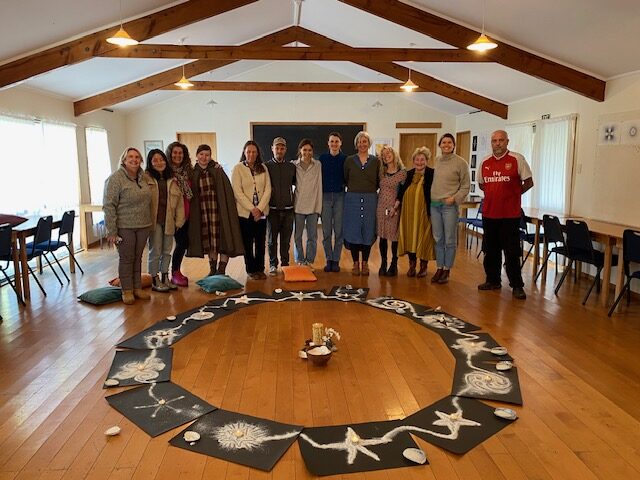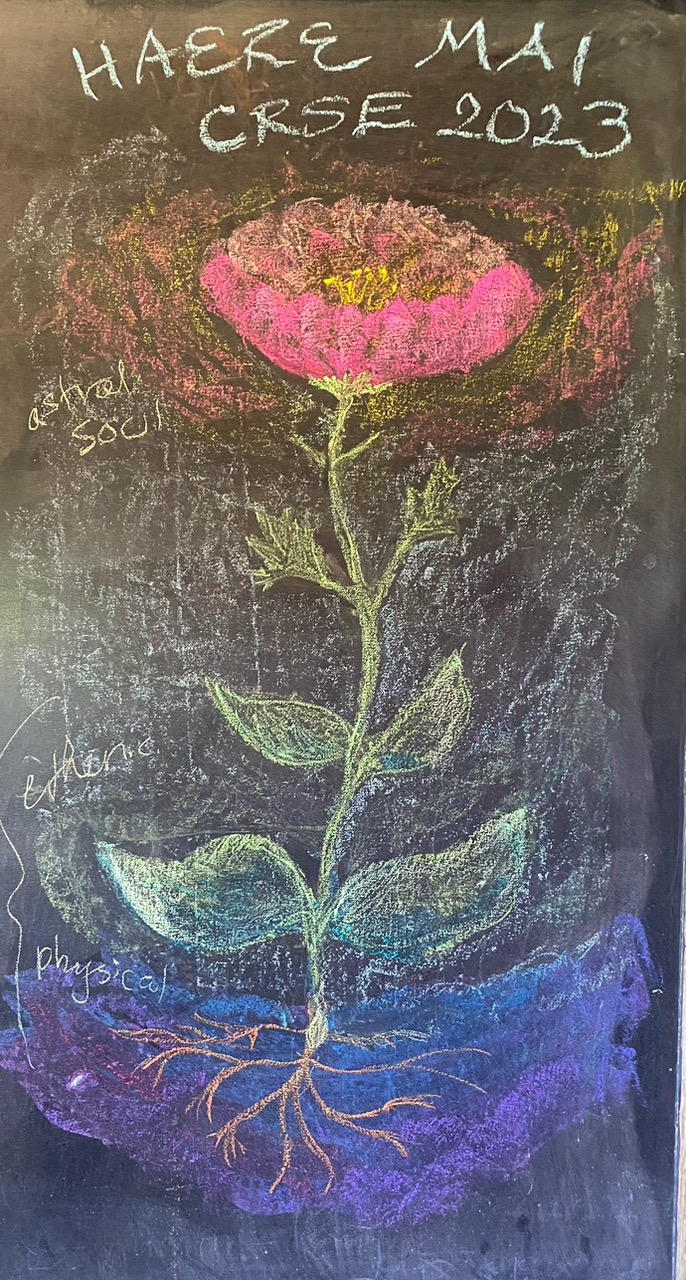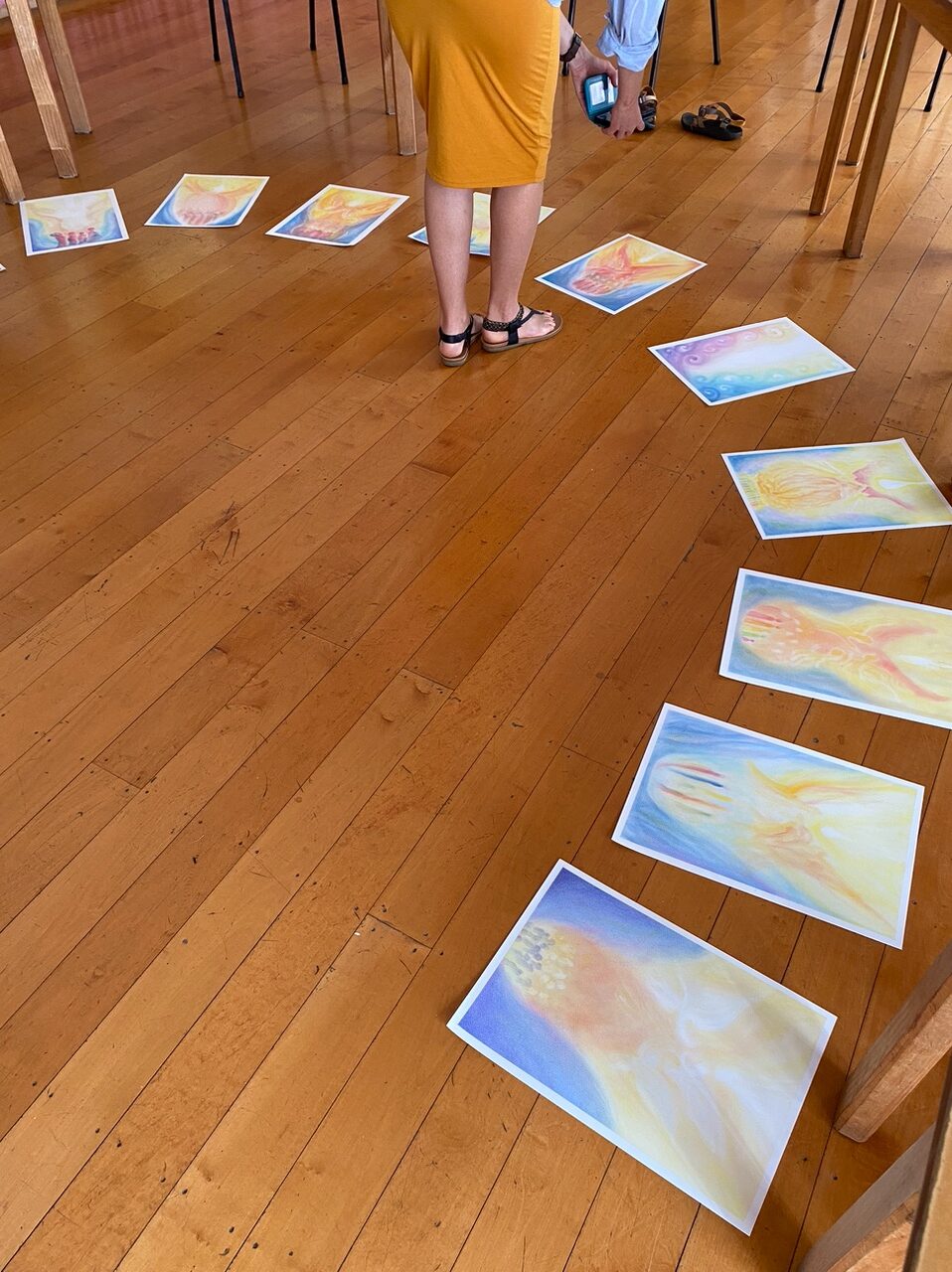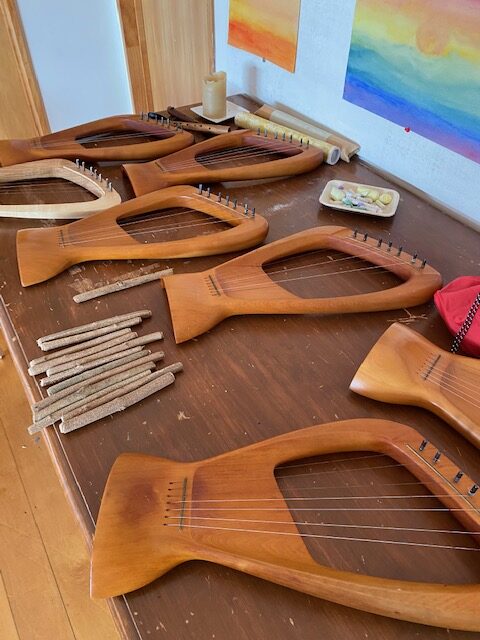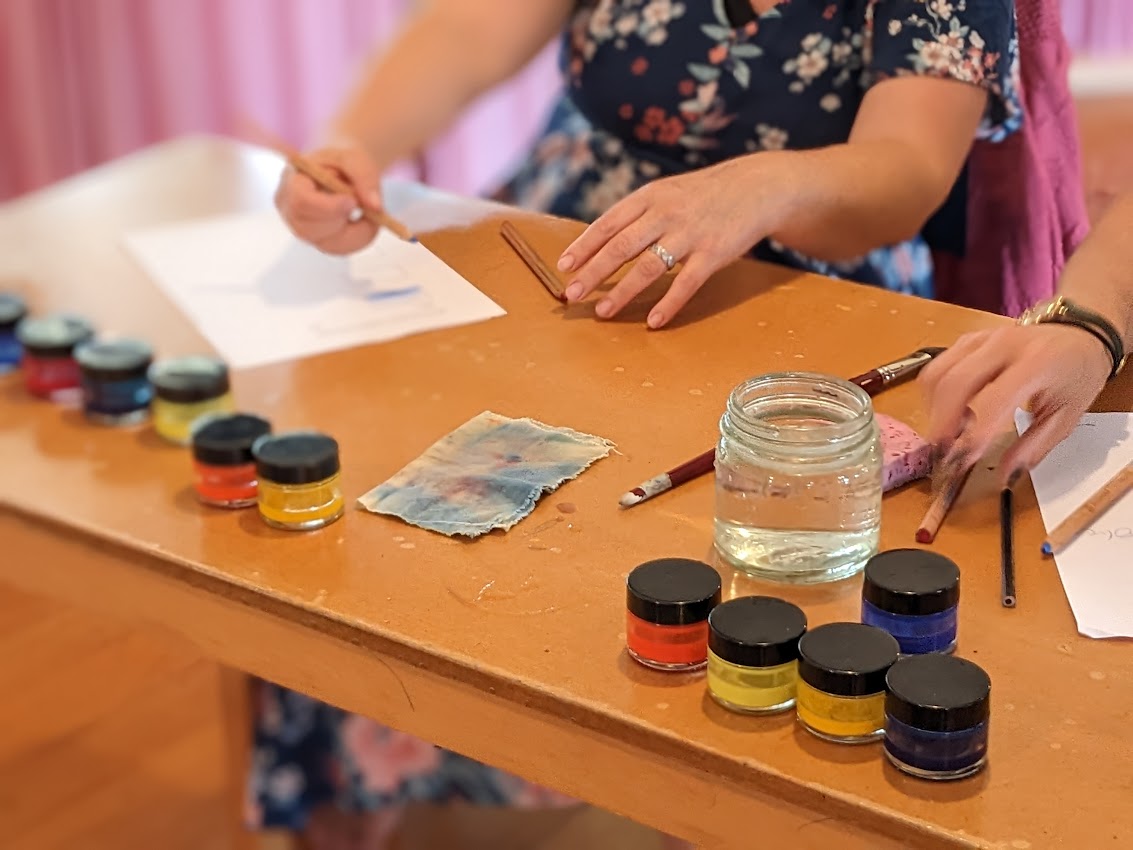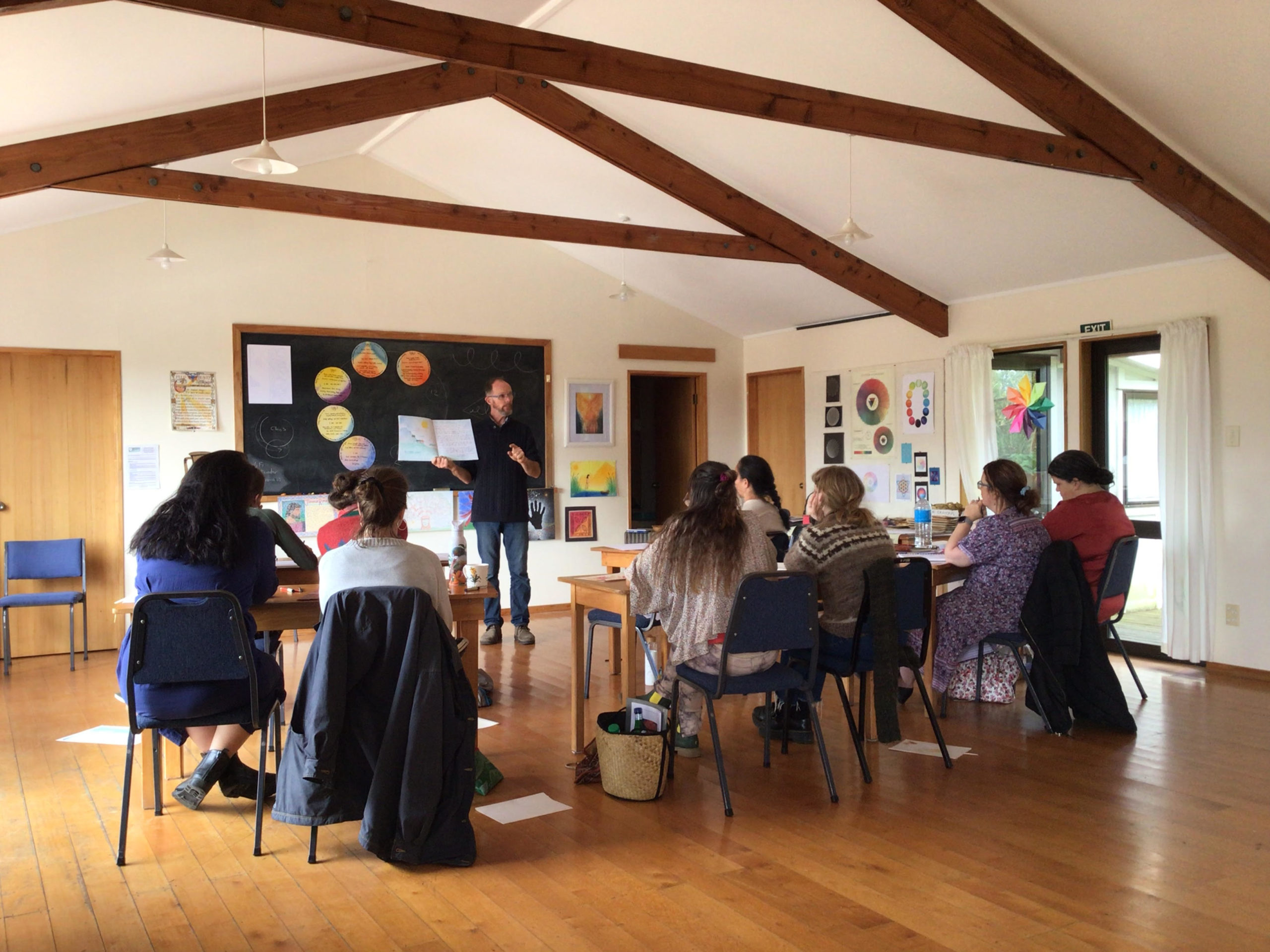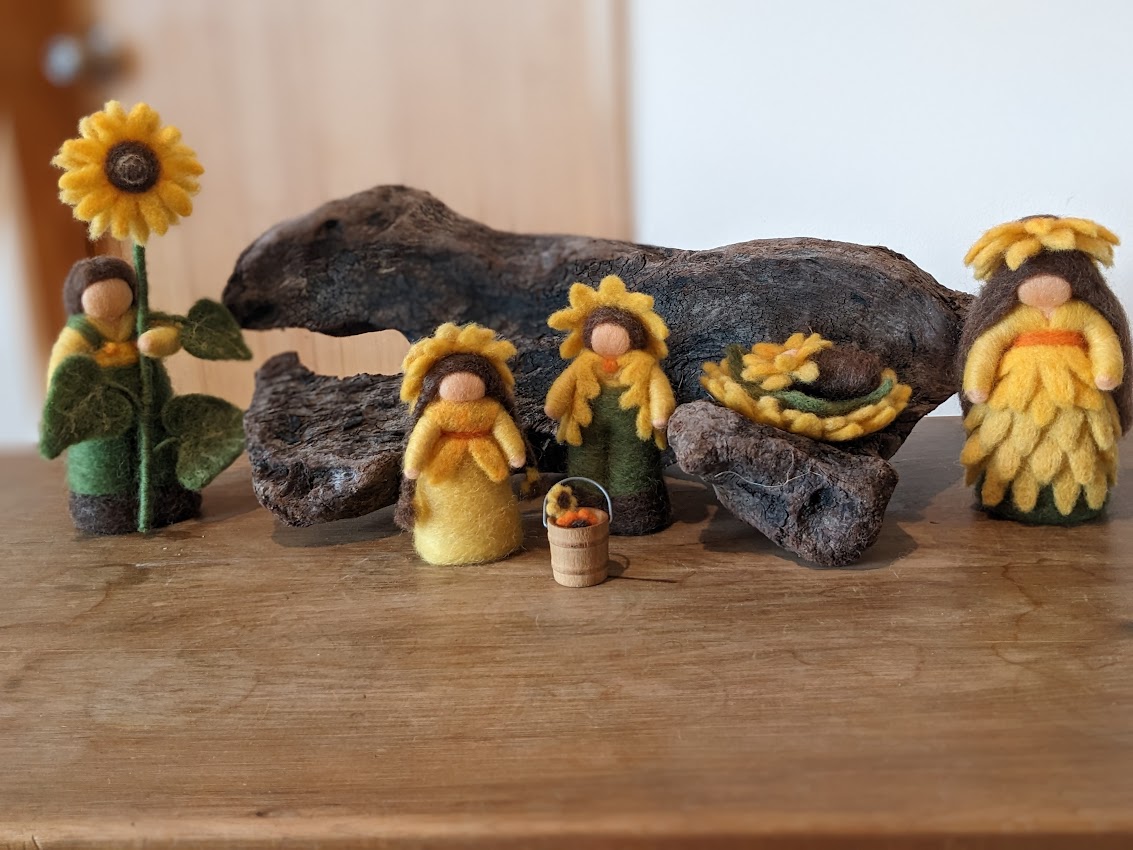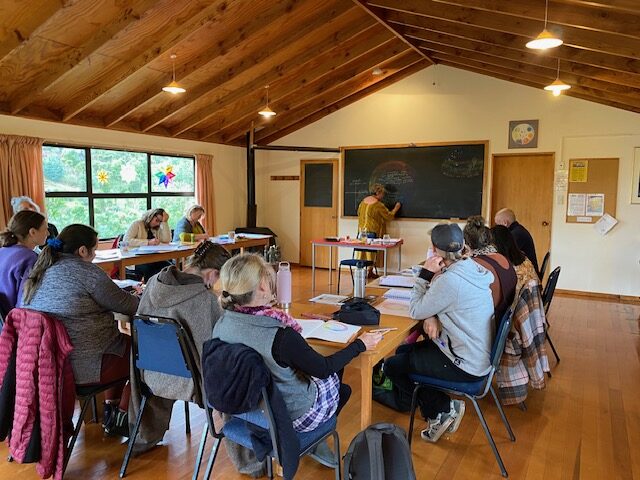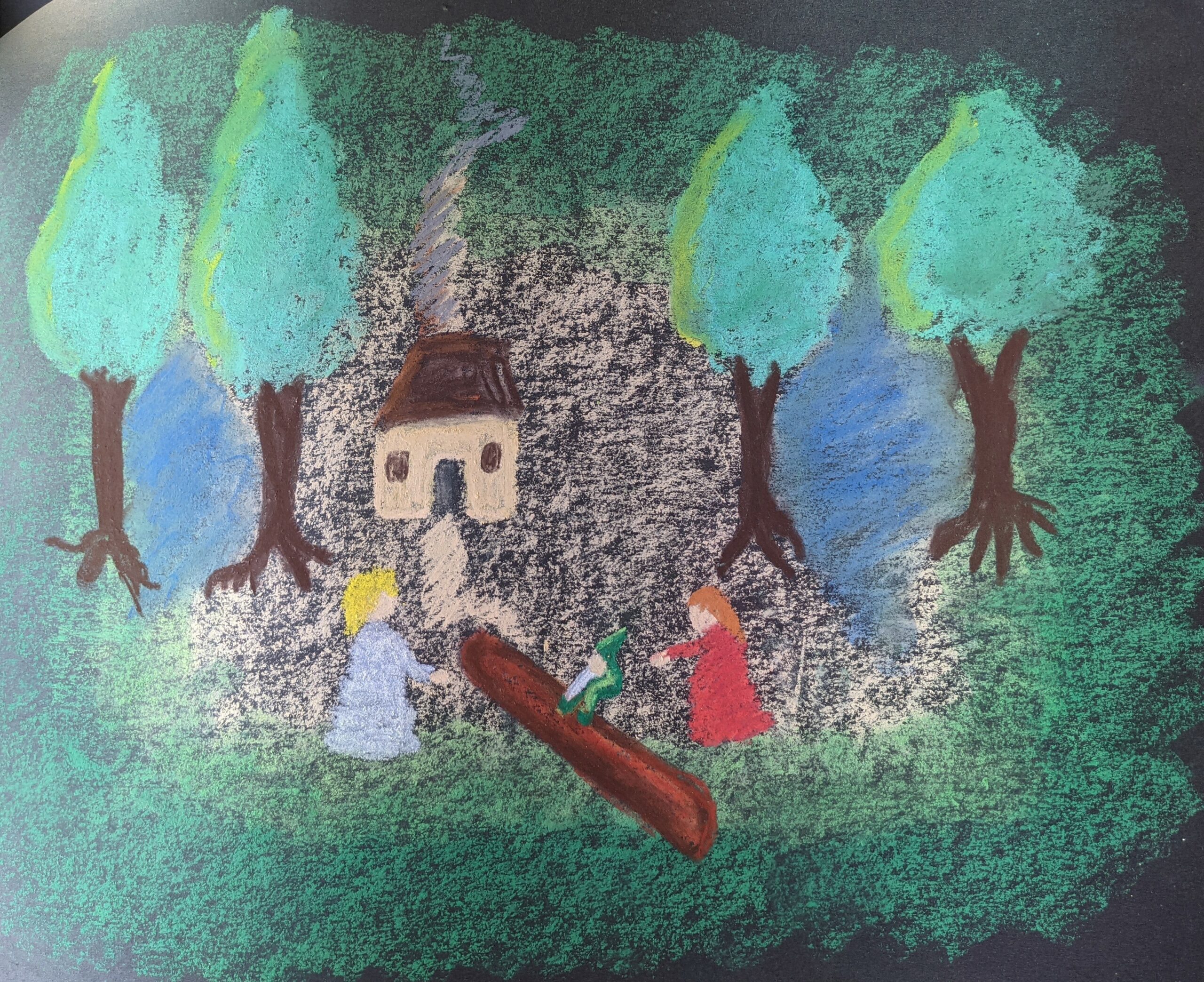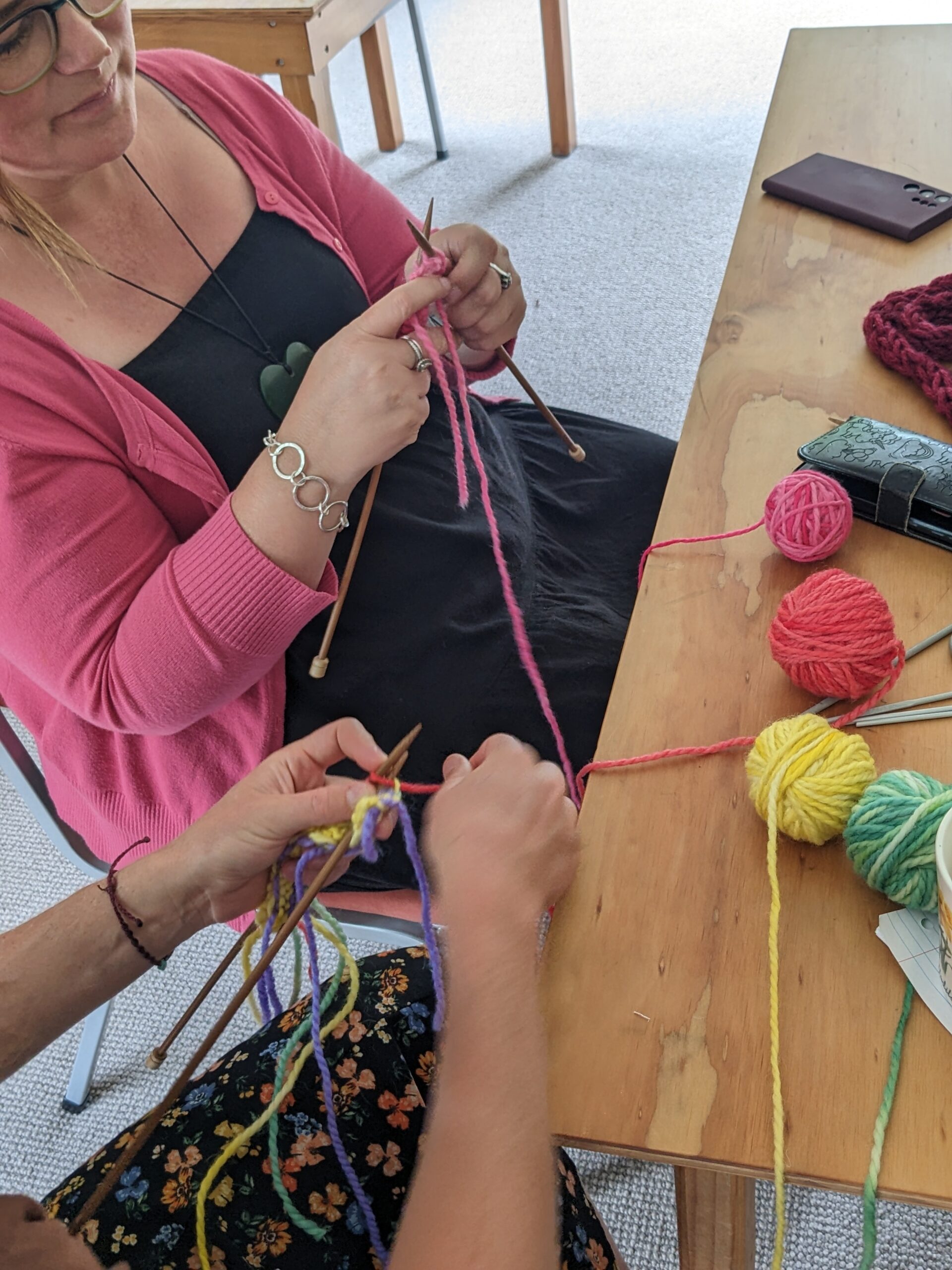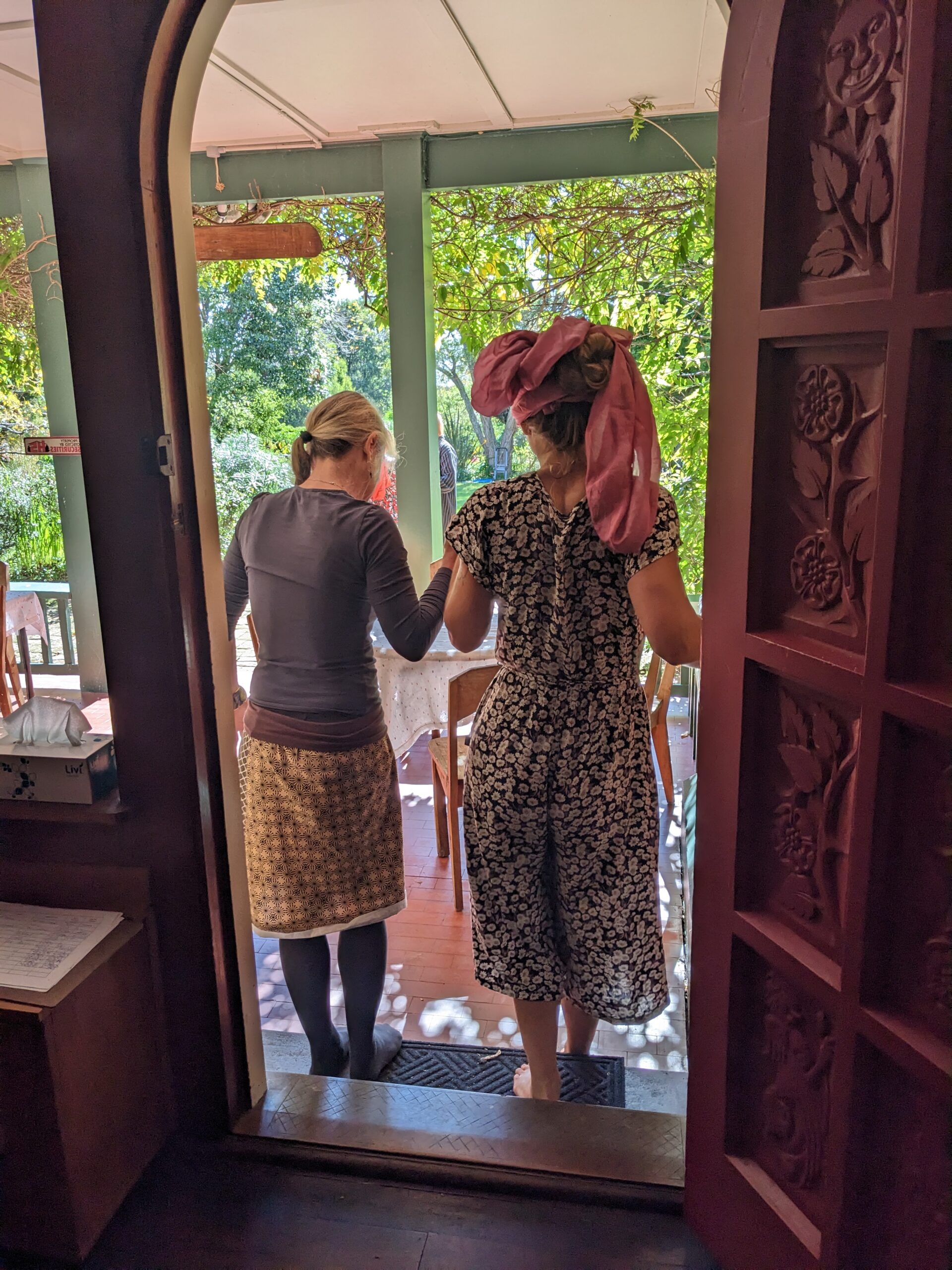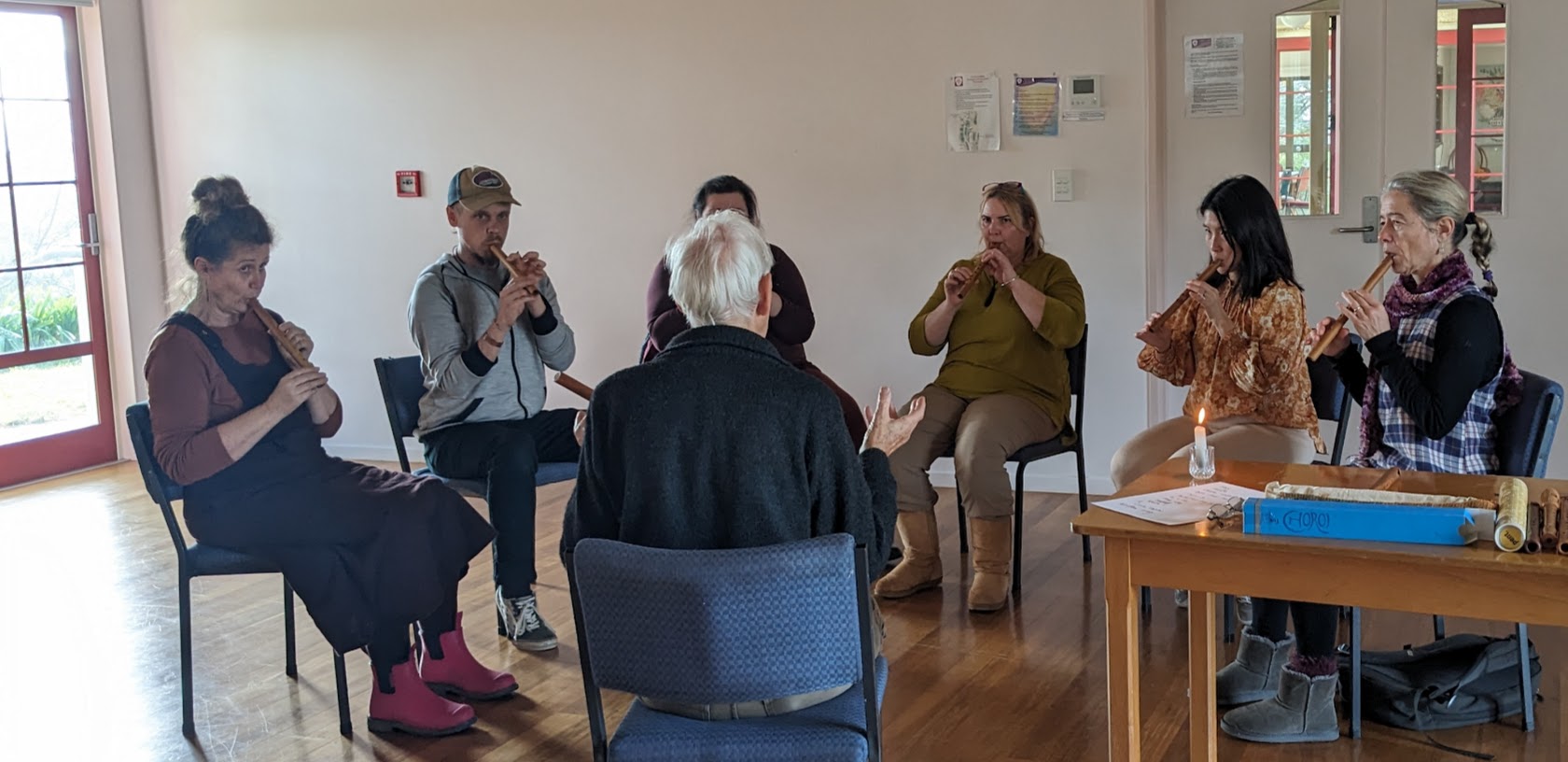Over the past four decades Taruna has played a significant role in providing professional development and preparatory courses for teachers, would-be teachers and others wishing to explore a new educational environment; one that honours and addresses what it means to be human. Students are given the opportunity to engage ‘head, heart and hands’ in order to deepen their understanding of the special character of Steiner Waldorf Education in a contemporary Aotearoa New Zealand context.
Taruna Certificate in Rudolf Steiner Education (CRSE)
This part-time year-long foundation programme gives a broad overview of the many-faceted dimensions of Rudolf Steiner Education, Waldorf pedagogy, curriculum and culture. Alongside lectures and workshops that will deepen and extend your understanding of child development and approaches to teaching and learning, you will have the opportunity to engage your creative side with many practical activities including arts, crafts, music and movement. Biography work, observation and reflective journaling recognise the importance of schooling and nourishing the inner life of the teacher. The course is designed to meet the needs of teachers new to Waldorf education who wish to extend their knowledge or to enliven and re-examine their classroom practice. It is also provides a helpful foundation for teacher aides in Steiner Waldorf schools, education students or graduates looking to teach in a Steiner Waldorf school, home-schooling parents and parents wishing to accompany their children’s education and development with increased consciousness.
New intake dates for 2024
Seminar 1: 21 – 25 April
Seminar 2: 14 – 18 July
Seminar 3: 29 Sept – 3 October
PLEASE NOTE: Minimum numbers are necessary for the course to go ahead. Please ensure any flights booked are fully refundable.
CRSE Programme and Structure
Participants of the CRSE:
- are introduced to the Steiner/Waldorf curriculum from early childhood to high school;
- explore and understand human biography and the stages of child development as a process of incarnation;
- develop observational skills;
- develop curriculum resources and references;
- learn to bring consciousness and creativity into teaching;
- support their learning through reflection;
- explore the qualities and techniques from a range of arts and crafts, such as:
- Painting
- Modelling
- Music
- Eurythmy
- Handwork/ archetypal crafts
- Drawing
- Creative writing
- Storytelling and Creative Speech
- Movement for morning circle
On-site seminar learning includes: Workshops, small group processes, lectures and discussions, journalling, artistic experience through a variety of media, and exploration through movement. Self-directed home-based study will need a minimum commitment of 3-5 hours per week. It will include:
- Artistic exercises, accompanied by process notes and reflections
- Short research projects, presented in essay format.
This programme includes three full-time seminars of 5 day’s duration. Each seminar begins at approximately 9:00 am on the Sunday and finishes at approximately 4:00 pm the following Thursday. All full days require attendance from 8:30 am to 5:00 pm. All other study is home based.
As a guide, there are approximately three hours per week of self-directed study or practical activity outside of the seminar weeks.
The CRSE is designed and best undertaken as an integrated whole that develops sequentially, however it is possible to participate in single seminar modules. For those wishing to complete the certificate, modules may be taken over two years (or longer by arrangement). This means you could come to just one or two seminar blocks during the year. Each seminar stands alone and is not dependent on attendance of the previous one. At the successful completion of all three seminar blocks and homework requirements participants will be issued with the Certificate in Rudolf Steiner Education. These are presented at a festive graduation ceremony held at Taruna usually in early December.
Course Costs
From 1 January 2024 the per seminar fee is $1250 (incl GST). Or $3450, if all three seminars are paid for one month prior to the first seminar beginning. The Crystal Bridge loan fund (see About Us page) makes interest free loans available to students enrolled this course at Taruna.
Taruna provides morning and afternoon tea along with vegetarian lunches while you are studying on site. Please advise in advance of any dietary requirements.
Participants need to purchase:
- Personal stationery and writing materials
- Art materials to be used for practice at home
- A list of any further requirements is provided in the Programme Handbook.
Seminar Overviews
Seminar One:
- Exploring the Anthroposophical foundations of Rudolf Steiner Waldorf Education. What does it mean to be human? What/who are we educating for? Education of the whole child. Life as a journey of development.
- The incarnating child, a broad overview from birth to 21, unfolding capacities, a developmentally responsive curriculum.
- Steiner’s pictures of the three-fold and four-fold human being, the soul faculties of thinking, feeling and willing.
- Self-development of the teacher.
- Meeting the world through the senses.
- Particular focus on the early childhood environment, the kindergarten years. Walking, speaking, thinking. Development of the will, the child as a sense being, the importance of play, of rhythm and of imitation. Understanding children’s drawings. Visit to a local Waldorf kindergarten.
Activities include a selection of:
Morning Circle activities, games, movement, singing, eurythmy, te reo Māori, painting, drawing, modelling, crafts, storytelling, speech, poetry, observation exercises
Seminar Two:
- Refreshing and building on Steiner’s picture of the human being as studied in Seminar One.
- Particular focus on the Lower School child, 7-14 years. The development of feeling and imagination.
- Significant developmental milestones: the nine year old, the twelve year old.
- The art of pedagogy. The main lesson, the arts-based curriculum, the teacher as an artist.
- From fairytale to history, teaching through story-telling, the power of narrative.
- Exploring a curriculum responsive to changes in the child’s developing consciousness
- The literacy journey; from a rich oral culture to writing then reading; the place of digital technology.
- A window into the development of science and mathematics in the Lower School years.
- Working with temperaments; the child’s and the teacher’s.
- The child study; deepening observation.
- The teacher’s journey; taking myself on, the pedagogical law.
- Visit to Taikura Rudolf Steiner School in Hastings.
Activities include a selection of:
Morning Circle activities, games, movement, singing, eurythmy, te reo Māori, painting, drawing, form drawing, geometry, modelling, crafts, storytelling, speech, poetry, drama, observation exercises.
Seminar Three:
- Refreshing and building on Steiner’s picture of the human being as explored in Seminars One and Two.
- Particular focus on the High School years. The development of thinking and the search for truth.
- Qualities of each age from 14 -18 years, curriculum themes and pedagogical approaches that address the consciousness of the emerging adult.
- Planetary soul types as a window for understanding and working with adolescents.
- Weaving the threads; Science, Art and Religion, the main lesson as an interdisciplinary approach.
- Education in the context of our times. ‘Education towards Freedom’, what does this mean? Capacities for meeting the future.
Activities will include a selection of:
Morning Circle activities, games, movement, music, eurythmy, te reo Māori, pastel work, drawing, modelling, hard and soft crafts, outdoor classroom, storytelling, speech, poetry, drama, observation exercises.
Please note that these are general guidelines for each seminar. The themes covered are vast; while the time frame is limited, each week will bring seeds from which students can grow their understanding in their own time and at their own pace: through study of texts, discussion, observation, practical application and self-review. There will be some self-chosen homework in between seminars and suggested reading to support the themes.
Rudolf Steiner Education in Aotearoa New Zealand
There are 11 Steiner Waldorf schools in New Zealand offering a diverse, rich and creative educational environment to children from kindergarten through to High School. Independent of these schools are a range of early childhood centres and kindergartens as well as state schools where inspired teachers strive to incorporate Waldorf pedagogy into their practice. New Zealand Steiner Waldorf schools are part of one of the largest global alternative education movements with over 1000 schools and 2000 kindergartens in over 60 countries worldwide.
The principles that are fundamental to Steiner/Waldorf education are accessible to and adaptable to, the needs of different ethnicities, cultures and religions. Curriculum content allows for the exploration of a wide variety of traditions and world views.
Each school is autonomous and reflects the unique qualities of the locality in which it has developed. Steiner Waldorf schools in Aotearoa New Zealand strive to imbue their curricula with the unique spirit and history of this land and its peoples.
History of Waldorf Education
The first school was opened in 1919 by a German industrialist, Emil Molt, who recognised that education was the key to finding a way out of the social chaos of post-World War 1 Germany and growing a new generation of young people who would not want to go to war. He invited Rudolf Steiner, founder of a science of the spirit and path of knowledge known as Anthroposophy, to direct a new school, the Waldorf School in Stuttgart, for the children of workers in his factory.
What is Rudolf Steiner Waldorf Education?
Steiner’s clear views on child development, the constitution of the human being and the purpose of existence, were like a shaft of light to those educationalists who heard and worked with him.
Steiner’s clear views on child development, the constitution of the human being and the purpose of existence, were like a shaft of light to those educationalists who heard and worked with him.
Steiner/Waldorf Education is based upon the understanding that the human being is a spiritual being on a purposeful earthly journey and that during this life journey distinctive, progressive phases of development unfold. Child development is seen as a process of gradual incarnation and individualisation. While the child “grows up” in its physical body, it also “grows down” from the spiritual world and creates in this meeting ground its own world of soul.
Approximately every seven years a new soul “faculty” emerges and matures during the following period. A healthy education will make best use of the opportunities for development that the different phases present. The structure of the school, the content of the curriculum, the teaching methods, and the relationship between pupil and teacher all reflect these distinct phases. In acknowledging the prime time of readiness for crossing new thresholds, the whole curriculum provides opportunities for learning experiences that can have the quality of traditional rites of passage.
This understanding gives rise to a pedagogy that brings content and skills not only at optimal developmental times, but also in an age-appropriate manner that is accessible and nurturing for the child. For example, the dreamy at‑oneness with the world in which the seven-year-old lives is met in the pictorial realm of the fairy tale, while the individualising and wakefulness of thinking experienced by the emerging adolescent is reflected in modern history.
In the Kindergarten phase the main focus is on the facilitation of, and immersion in, creative will activity. During the primary school years the education engages the child more through its feelings and imagination. The focus in the high school is towards developing the student’s thinking capacity.
Extracted from Curriculum Guidelines, Federation of Rudolf Steiner Waldorf Schools in New Zealand, June 2015
School and Student Feedback
Feedback from a NZ Steiner School:
“When our staff return from Taruna each time they are brimming with enthusiasm in terms of what they have learnt. The assignments you set are very useful in terms of their teaching practice. Keep up the valuable work.”
Some feedback from past students:
“Taruna was a safe and supporting environment where I could be truly myself. The teachers and classmates were incredible. The course material was beautifully interwoven and structured”.
“My personal goals in participating in this course were around gaining a deeper understanding of children and their developmental stages, to gain more confidence in my abilities to hold space as a main teacher in our school group, to gain more practical tools to use in class, and to assist in bringing self confidence. Additionally I have a great interest in spiritually centred philosophies and those which look at the human being holistically. A further goal was to develop a greater understanding of the essence Steiner Waldorf Philosophy to then utilise in working with and understanding children in a holistic manner.
The journey in working towards these goals has been so vastly different to anything I projected about the course or what the learning experience would be. I guess when you actually live something it is always going to be different than that which you imagine it to be. It has been rich, and given so much. The main thing I now notice is that I feel like I am far more worthy of standing in front of the children as their teacher. To know that I have taken myself on in taking on this course, and will continue to strive to meet the children through a holistic lens makes me feel far more confident in my teaching. The practical skills I have gained through this course have certainly brought me more confidence, as I had hoped they would”.
New Zealand Steiner Teacher Diploma – Early childhood (NZSTD-EC)
For those wishing to pursue a further professional education (3 years part time) in Rudolf Steiner Waldorf Early Childhood teaching, this Diploma is offered in partnership with Steiner Education Aotearoa New Zealand (SEANZ) and endorsed by the International Association for Steiner Waldorf Early Childhood Education (IASWECE). For further details please contact edith.vandermeer@gmail.com



